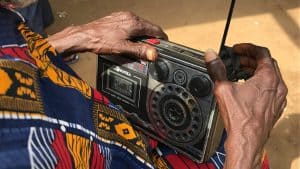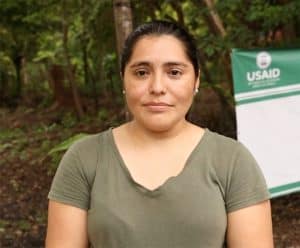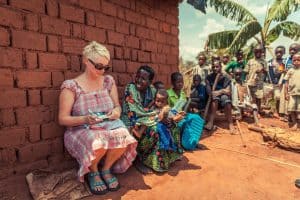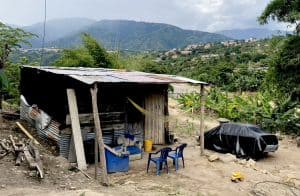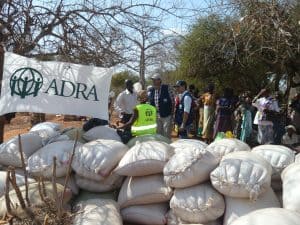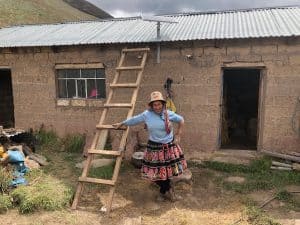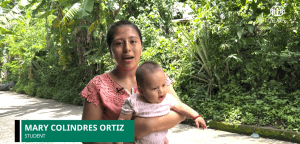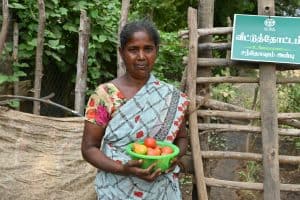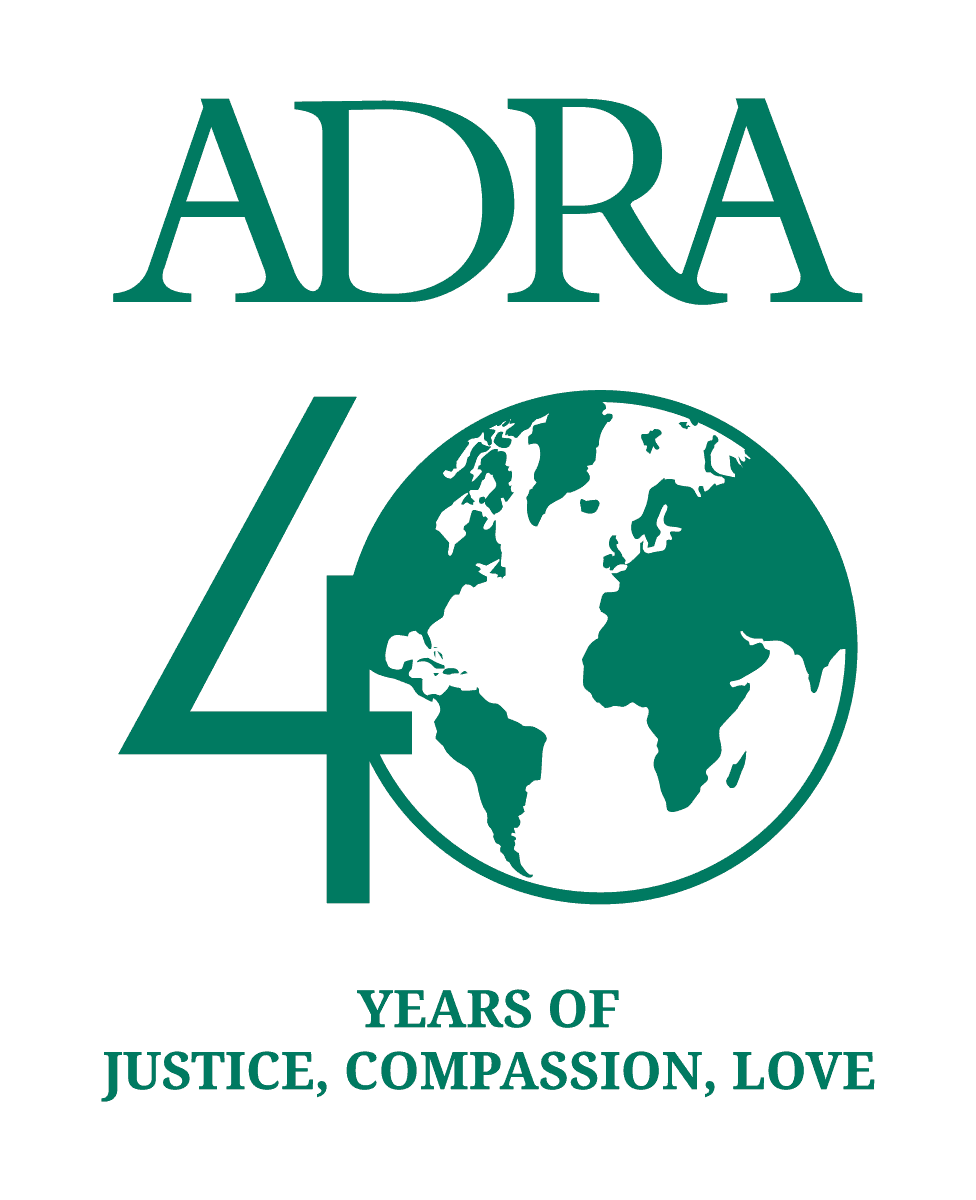“I am scared to die from hunger,” Marie-Julina said.
“I have eight children and four grandchildren living with me,” she said. “I am responsible for their survival. We haven’t had enough to eat for eight years. We would plant, but nothing would grow.
“Some of my children have never had more than one meal a day. They have never experienced having enough food to eat. Their stomachs are always gnawing at them. I am very worried about them.”
Marie-Julina motions toward the house behind her. It’s tiny, doorless, and completely empty except for the straw mats she drags outside to sit on.
Most of Marie-Julina’s grandchildren know nothing but hunger. A lifetime of hollow stomachs is visible in their stunted and frail bodies. Yet they play as any child would. Marie-Julina watches them, smiling at their simple games. But she doesn’t know how long it will last—their games, or their lives.
Marie-Julina does what she can to earn some income. She collects and sells firewood. And she makes and sells straw mats. But the selling part doesn’t happen very often. Most of her neighbors struggle too. She feels she has to do something, even if it is for a meager and unpredictable income.
On the rare occasion when she can make a sale, Marie-Julina will buy three cassava. She cuts the tubers (much like a potato) into small pieces and boils them. Then she divides them between her family—all 13 of them. Think of it—three large potatoes (and nothing additional) to feed more than a dozen people!
This will be their only meal for the entire day. And perhaps the next, and for who knows how long after that.
“When I don’t have enough money to buy cassava, we look for cactus fruit,” she said. Some of her neighbors have planted cactus as fences around their houses. Marie-Julina and the children will walk through the village to find what they can.
Everyone is suffering in Marie-Julina’s village. Most of the other families have fathers and husbands that help provide. Marie-Julina faces each day alone; the survival of her children rests on her shoulders.
Harvest and heartache go hand in hand for Marie-Julina and her family. For the past eight years, the drought has multiplied her family’s suffering. No rain means no crops. No crops mean no income. No income means no food. No food means, well, eventually someone will die.


